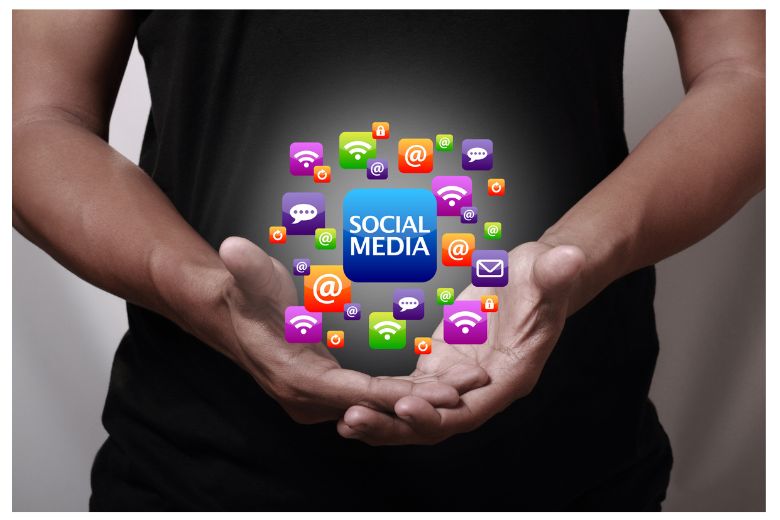The Impact of Social Media on Weight Loss in the USA
Introduction
In today’s digital age, social media has become an integral part of our lives. It has transformed the way we communicate, gather information, and even influence our behavior. One area where social media has had a significant impact is weight loss. People across the United States are turning to social media platforms for support, motivation, and guidance on their weight loss journey. In this article, we will explore the various ways in which social media influences weight loss in the USA.
Table of Contents
- The Role of Social Media in Weight Loss
- 1.1 Inspiration and Motivation
- 1.2 Access to Information and Resources
- 1.3 Support and Accountability
- Influencers and Fitness Gurus on Social Media
- 2.1 Personal Stories and Transformations
- 2.2 Exercise and Diet Tips
- 2.3 Product Recommendations and Reviews
- Online Communities and Support Groups
- 3.1 Sharing Experiences and Encouragement
- 3.2 Peer Support and Networking
- 3.3 Virtual Challenges and Competitions
- Tracking Progress and Goal Setting
- 4.1 Fitness Apps and Wearable Devices
- 4.2 Social Media Check-Ins and Updates
- 4.3 Gamification of Weight Loss
- Challenges and Limitations of Social Media
- 5.1 Information Overload and Misinformation
- 5.2 Unrealistic Expectations and Comparison
- 5.3 Lack of Personalization and Professional Guidance
- Conclusion
- FAQs
1. The Role of Social Media in Weight Loss
1.1 Inspiration and Motivation
Social media platforms are filled with inspiring weight loss stories, before-and-after pictures, and success stories. People share their personal journeys, documenting their progress and celebrating their achievements. These stories provide motivation and inspiration to others who are looking to lose weight.
1.2 Access to Information and Resources
Through social media, individuals have easy access to a wealth of information and resources related to weight loss. They can learn about different diet plans, exercise routines, and healthy recipes. Social media platforms also serve as a platform for experts and professionals to share their knowledge and provide guidance.
1.3 Support and Accountability
Weight loss can be a challenging and sometimes lonely journey. However, social media offers a sense of community and support. Individuals can connect with like-minded people, share their struggles and successes, and receive encouragement and advice. Social media also provides a level of accountability as users publicly declare their goals and progress.
2. Influencers and Fitness Gurus on Social Media
2.1 Personal Stories and Transformations
Influencers and fitness gurus on social media often share their personal weight loss stories and transformations. These stories create relatability and establish trust among their followers. By showcasing their own experiences, they inspire others and demonstrate that achieving weight loss goals is possible.
2.2 Exercise and Diet Tips
Social media influencers and fitness gurus provide valuable tips and advice on exercise routines, dietary choices, and healthy habits. They share workout videos, meal plans, and recipes, making it easier for individuals to incorporate healthier practices into their daily lives.
2.3 Product Recommendations and Reviews
Influencers often promote various weight loss products and supplements on social media. They offer reviews and recommendations based on their personal experiences, helping individuals make informed choices about which products to try. However, it’s important for users to exercise caution and do their own research before purchasing any weight loss products.
3. Online Communities and Support Groups
3.1 Sharing Experiences and Encouragement
Online communities and support groups dedicated to weight loss have thrived on social media platforms. These communities provide a safe space for individuals to share their experiences, seek advice, and receive encouragement from others who are on a similar journey. The sense of belonging and support can boost motivation and help individuals stay committed to their weight loss goals.
3.2 Peer Support and Networking
Social media allows individuals to connect with peers who are also striving to lose weight. By forming virtual connections, people can offer support, exchange tips, and celebrate milestones together. Peer support can foster a sense of camaraderie and make the weight loss journey feel less isolating.
3.3 Virtual Challenges and Competitions
Social media platforms facilitate virtual challenges and competitions related to weight loss. These challenges encourage participants to set goals, track their progress, and compete with others. The element of competition can serve as a powerful motivator, pushing individuals to work harder towards their weight loss objectives.
4. Tracking Progress and Goal Setting
4.1 Fitness Apps and Wearable Devices
Fitness apps and wearable devices have become increasingly popular in tracking and monitoring weight loss progress. These tools can sync with social media platforms, allowing users to share their achievements and milestones with their online community. Tracking progress publicly can enhance motivation and provide a sense of accomplishment.
4.2 Social Media Check-Ins and Updates
Individuals often use social media to document their weight loss journey through regular check-ins and updates. They share their daily workouts, meals, and progress photos. These updates not only keep followers informed but also help individuals stay accountable and committed to their goals.

4.3 Gamification of Weight Loss
Social media platforms have incorporated gamification elements into weight loss. Users earn badges, rewards, and virtual trophies for achieving certain milestones or participating in challenges. Gamification enhances engagement, making weight loss feel more enjoyable and exciting.
5. Challenges and Limitations of Social Media
5.1 Information Overload and Misinformation
With the abundance of weight loss information available on social media, it can be challenging to differentiate between evidence-based advice and misinformation. Individuals should be cautious and verify the credibility of the sources before implementing any weight loss strategies they come across on social media.
5.2 Unrealistic Expectations and Comparison
Social media often presents an idealized version of weight loss, emphasizing rapid transformations and showcasing individuals with enviable physiques. This can lead to unrealistic expectations and unhealthy comparisons. It is important for users to remember that everyone’s weight loss journey is unique and progress varies from person to person.
5.3 Lack of Personalization and Professional Guidance
While social media provides a supportive environment, it cannot replace personalized guidance from healthcare professionals. Every individual has unique needs and considerations when it comes to weight loss. Consulting with a healthcare provider or a registered dietitian is crucial for developing a personalized weight loss plan that suits an individual’s specific circumstances.
6. Conclusion
Social media has revolutionized the way people approach weight loss in the USA. It offers inspiration, motivation, information, and a sense of community. However, it is important to approach social media with a critical mindset, distinguishing between reliable information and misinformation. Social media can be a valuable tool in the weight loss journey, but it should be complemented with personalized guidance from professionals.
FAQs
- Is social media a reliable source of weight loss information?
Social media can provide a wealth of informationand resources for weight loss, but it’s important to exercise caution and verify the credibility of the sources. Always consult with healthcare professionals for personalized guidance.
- Can social media help with motivation and accountability?
Yes, social media can provide motivation and a sense of accountability through online communities, support groups, and sharing progress publicly. Connecting with like-minded individuals can boost motivation and help individuals stay committed to their weight loss goals.
- Are influencers and fitness gurus on social media trustworthy?
While influencers and fitness gurus on social media can offer valuable tips and inspiration, it’s important to approach their recommendations with a critical mindset. Do your own research and consult professionals before trying any weight loss products or following specific diets or exercise routines.
- How can social media impact mental health during weight loss?
Social media can sometimes lead to unhealthy comparisons and unrealistic expectations. It’s important to remember that everyone’s weight loss journey is unique. Focus on your own progress and seek support from positive communities that promote self-acceptance and realistic goals.
- Should I rely solely on social media for weight loss guidance?
Social media can be a helpful tool, but it should not replace personalized guidance from healthcare professionals. Every individual has unique needs and considerations. Consult with a healthcare provider or registered dietitian for personalized weight loss plans tailored to your specific circumstances.
In conclusion, social media has had a significant impact on weight loss in the USA. It provides inspiration, information, support, and accountability to individuals on their weight loss journey. However, it’s important to approach social media with a critical mindset, verify information, and seek professional guidance for personalized weight loss plans. Utilize the benefits of social media while being mindful of its limitations to make the most of your weight loss efforts.
